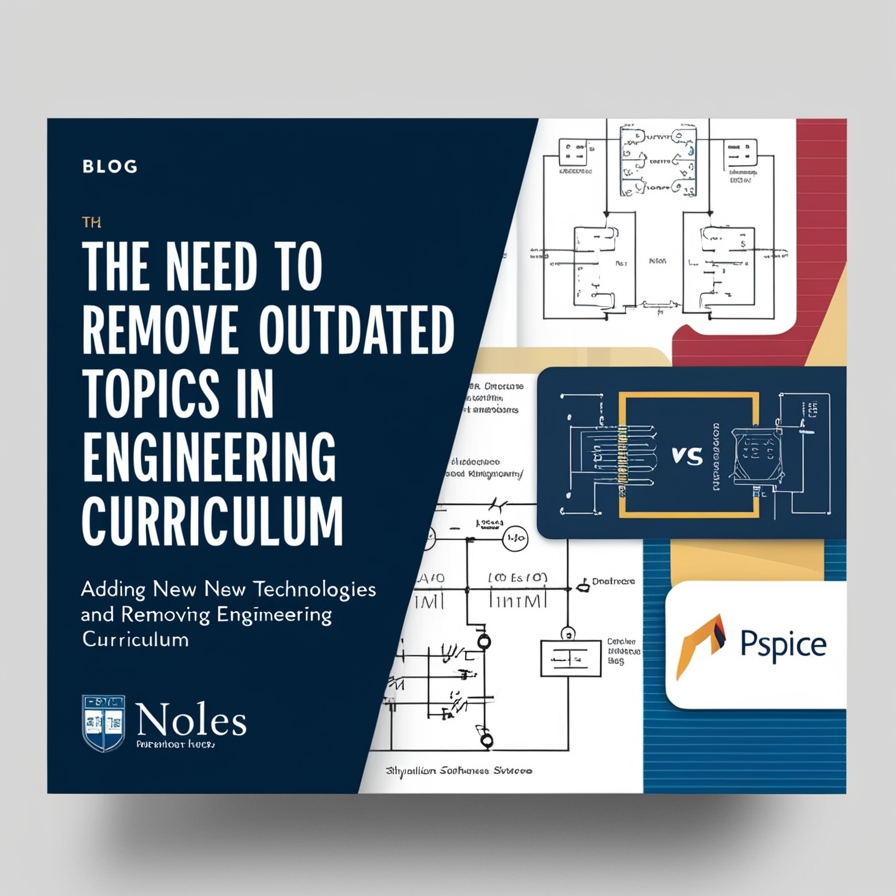In the ever-evolving field of engineering, it is crucial to keep the curriculum up-to-date with the latest technologies and tools. However, an equally important aspect that often gets overlooked is the need to remove outdated topics from the syllabus. As we continuously add new tools and subjects to our engineering programs, we must also consider eliminating those that no longer serve a practical purpose in today’s industry.
Outdated Theories and Tools: A Burden on Students and Teachers
Including the latest advancements in the engineering syllabus is undoubtedly beneficial, but retaining outdated theories and tools can be counterproductive. These obsolete elements waste valuable time for both students and teachers. For instance, in subjects like basic electric circuits or DC circuits, traditional theories such as Thevenin’s and Norton’s theorems have been staples for a long time. These theories were originally developed to determine the current in circuit elements of complex networks.
However, with the advent of advanced simulation software, these manual calculations have become largely redundant. Modern tools like MATLAB, PSpice, and ETAP provide efficient solutions for analyzing and solving complex circuits. Yet, students are still required to learn and perform these outdated manual calculations for theory exams, adding an unnecessary burden to their already heavy workload.
The Necessity of Curriculum Revisions
To address this issue, it is essential to revisit and revise the engineering curriculum. There are two main approaches to achieve this:
- Remove the Outdated Topics Entirely: By eliminating these obsolete subjects from the curriculum, we can make room for more relevant and current topics that better prepare students for their careers.
- Retain as Informational Content: Alternatively, we can keep these outdated topics as informational content, ensuring that they are not included in exams. This way, students are aware of historical methods without being overwhelmed by them.
Benefits of Updating the Curriculum
By removing outdated topics, we can introduce more pertinent subjects into the curriculum. This shift allows students to focus more on practical applications, such as electronics projects, embedded systems, and the Internet of Things (IoT). Furthermore, this approach aligns the curriculum with current industry practices, making graduates more job-ready.
The Changing Landscape of Engineering Education
A few decades ago, the engineering syllabus was designed with significant constraints due to the limited availability and high cost of electronic components and tools. Today, these components and tools are easily avilable and affordable. This change in the landscape necessitates a deep rethinking of the curriculum to ensure it remains relevant and effective.
A Call for Continuous Improvement
As a Board of Study Member of various engineering universities, I frequently engage in discussions and brainstorming sessions about updating the electrical engineering curriculum. It is through these dialogues that I have come to appreciate the importance of balancing the inclusion of new technologies with the removal of outdated ones.
Conclusion
Updating the engineering curriculum is not just about adding the latest tools and technologies; it is also about letting go of outdated topics that no longer serve a practical purpose. By doing so, we can ensure that our students are better prepared for the challenges of modern engineering careers. I invite you to share your thoughts and suggestions on this matter as we strive to create a more relevant and effective engineering education.
Thank you for taking the time to read this article. Your comments and suggestions are welcome.
